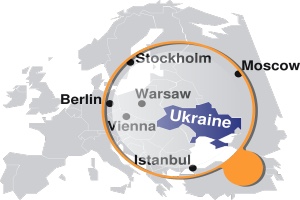
 By Venkatesh Raghavan
By Venkatesh Raghavan
Russia’s current showdown at its Ukrainian border is held by geopolitical observers as belonging to the category of preventive wars. The conflict with Ukraine arose mainly because of Ukraine’s desire to become a part of the North Atlantic Treaty Organization (NATO) alliance. The Russian military views this move as a power shift game that could cost Russia dear territorially in the long run.
It may be recalled that another of Russia’s vassal states, Georgia’s bid to join the NATO alliance was welcomed by the then American President, George W Bush. However, the pre-condition for Georgia being part of NATO was the two separatist issues within the state had to be resolved amicably. Russian President Vladimir Putin gave tacit support to the separatist groups and stalled Georgia’s ambition to become a part of the NATO bloc of western powers.
Also read:
- Putin says he seeks to “demilitarise and denazify” Ukraine
- G7 for more severe sanctions on Russia; China slams US for bloc politics
In short, it boils down to a similar crisis situation as Ukraine’s bid to join the NATO alliance is something that Putin is very averse to. There are two main reasons why Russia is wary of this attempt by Ukraine. Firstly, being part of the alliance, Ukraine will gain an upper hand in terms of the deployment of troops in the event of a war. Without having to bother about mid-way alliances that cause great inconvenience for purposes of mobilization, they can plan out their strategic deployment well in advance.
The second ground that is unfavourable to Russia on this count is something to do with Adam Smith’s inventing division of labour as a technique for mass production. For example, as part of expediting war strategies, the United States delegated the construction of minesweepers way back in the eighties to Belgium and Netherlands. By virtue of being part of the NATO bloc, the US repeatedly used the principle of delegation and outsourcing that lent itself to the specialization of tasks to member countries.
In short, the option to press specialization into service permits the NATO bloc to produce and mobilize more military goods in a shorter time span. In short, more military goods also meant more military power for the Alliance member countries. The second ground, however, has a time factor linked to it. For Ukraine to become or turn into a full-fledged NATO member and gain the fruits of military might that would arise from the alliance, a fairly long gestation period is the stake.
It’s this gestation that comes in the way of Ukraine’s power stake that the Russian military wants to utilize so that it can nip things in the bud and prevent any prospects of Ukraine gaining a strategic edge in its border skirmish. On Ukraine’s part, the production of specialized weapons and their efficient mobilization is never going to be something that can be swung into operation instantaneously. Besides, Ukraine will also require the leeway to efficiently coordinate its battle strategies before it can count on effectuating territorial gains.
The flip side is that Russia can rely on this time span that in turn will permit its military forces to conduct offensives on its borders with Ukraine. In short, Russians will find it favourable militarily owing to Ukraine being made to fight it all alone. It has all the makings of a preventive war.





